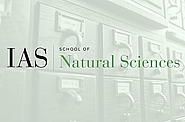Joint IAS Princeton University Astrophysics Colloquium
Apr
01
2025
Institute for Advanced Study / Princeton University Joint Astrophysics Colloquium
LCDM, Tensions, and the Atacama Cosmology Telescope
Suzanne Staggs
11:00am|Peyton Hall, Auditorium, Princeton University
Mar
25
2025
Institute for Advanced Study / Princeton University Joint Astrophysics Colloquium
Learnings about, and from, fast radio bursts
Vikram Ravi
11:00am|Peyton Hall, Auditorium, Princeton University
Mar
18
2025
Institute for Advanced Study / Princeton University Joint Astrophysics Colloquium
The Gaia binary star revolution
Kareem El-Badry
11:00am|Peyton Hall, Auditorium, Princeton University
Mar
04
2025
Institute for Advanced Study / Princeton University Joint Astrophysics Colloquium
Is machine learning good or bad for astrophysics?
David Hogg
11:00am|Peyton Hall, Auditorium, Princeton University
Feb
25
2025
Institute for Advanced Study / Princeton University Joint Astrophysics Colloquium
Simulating Black Hole Feasts, Burps, and Fireworks
Sasha Tschekhovskoy
11:00am|Peyton Hall, Auditorium, Princeton University
Feb
18
2025
Institute for Advanced Study / Princeton University Joint Astrophysics Colloquium
The Tale of the Multiply-imaged Standard Candle Supernova "H0pe" That Yielded a Value for the Current Expansion Rate of the Universe
Brenda Frye
11:00am|Peyton Hall, Auditorium, Princeton University
Feb
11
2025
Institute for Advanced Study / Princeton University Joint Astrophysics Colloquium
A case for Mars terraforming research
Edwin Kite
11:00am|Peyton Hall, Auditorium, Princeton University
Feb
04
2025
Institute for Advanced Study / Princeton University Joint Astrophysics Colloquium
The Climates of Other Worlds: Searching for the Next Habitable Planet
Aomawa Shields
11:00am|Peyton Hall, Auditorium, Princeton University
Dec
03
2024
Institute for Advanced Study / Princeton University Joint Astrophysics Colloquium
New Perspectives onto the Universe in the Era of Multi-Messenger Astrophys
Samaya Nissanke (University of Amsterdam)
11:00am|Wolfensohn Hall
Nov
26
2024
Institute for Advanced Study / Princeton University Joint Astrophysics Colloquium
An Early JWST View of Quasars at Cosmic Dawn
11:00am|Wolfensohn Hall
